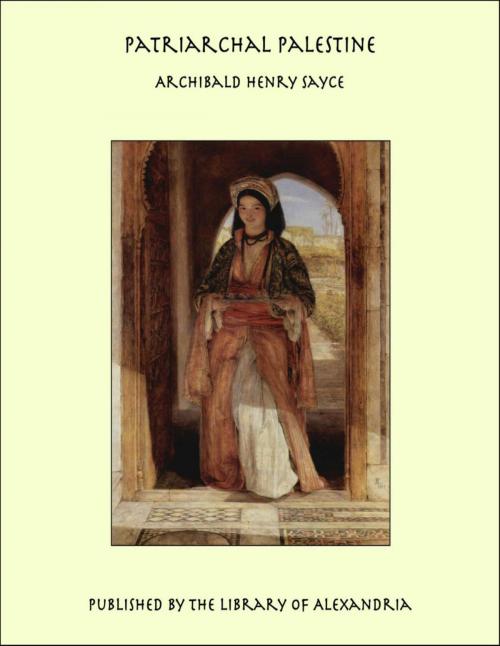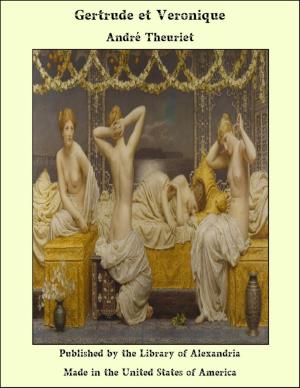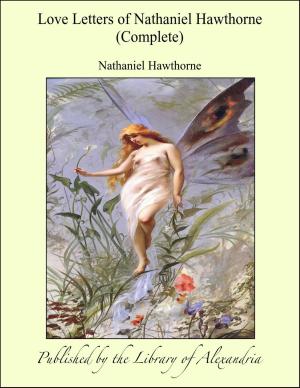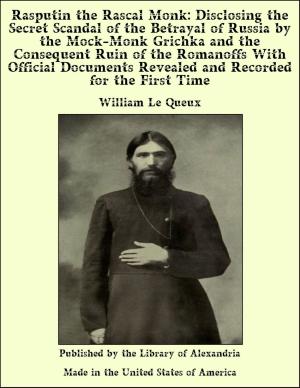| Author: | Archibald Henry Sayce | ISBN: | 9781465550422 |
| Publisher: | Library of Alexandria | Publication: | March 8, 2015 |
| Imprint: | Language: | English |
| Author: | Archibald Henry Sayce |
| ISBN: | 9781465550422 |
| Publisher: | Library of Alexandria |
| Publication: | March 8, 2015 |
| Imprint: | |
| Language: | English |
A few years ago the subject-matter of the present volume might have been condensed into a few pages. Beyond what we would gather from the Old Testament, we knew but little about the history and geography of Canaan before the age of its conquest by the Israelites. Thanks, however, to the discovery and decipherment of the ancient monuments of Babylonia and Assyria, of Egypt and of Palestine, all this is now changed. A flood of light has been poured upon the earlier history of the country and its inhabitants, and though we are still only at the beginning of our discoveries we can already sketch the outlines of Canaanitish history, and even fill them in here and there. Throughout I have assumed that in the narrative of the Pentateuch we have history and not fiction. Indeed the archaeologist cannot do otherwise. Monumental research is making it clearer every day that the scepticism of the so-called "higher criticism" is not justified in fact. Those who would examine the proofs of this must turn to my book on The Higher Criticism and the Verdict of the Monuments. There I have written purely as an archaeologist, who belongs to no theological school, and consequently readers of the work must see in it merely the irreducible minimum of confidence in the historical trustworthiness of the Old Testament, with which oriental archaeology can be satisfied. But it is obvious that this irreducible minimum is a good deal less than what a fair-minded historian will admit. The archaeological facts support the traditional rather than the so-called "critical" view of the age and authority of the Pentateuch, and tend to show that we have in it not only a historical monument whose statements can be trusted, but also what is substantially a work of the great Hebrew legislator himself. For those who "profess and call themselves Christians," however, there is another side to the question besides the archaeological. The modern "critical" views in regard to the Pentateuch are in violent contradiction to the teaching and belief of the Jewish Church in the time of our Lord, and this teaching and belief has been accepted by Christ and His Apostles, and inherited by the Christian Church. It is a teaching and belief which lies at the root of many of the dogmas of the Church, and if we are to reject or revise it, we must at the same time reject and revise historical Christianity. It is difficult to see how we can call ourselves Christians in the sense which the term has borne for the last eighteen hundred years, and at the same time repudiate or modify, in accordance with our individual fancies, the articles of faith which historical Christianity has maintained everywhere and at all periods. For those who look beyond the covers of grammars and lexicons, the great practical fact of historical Christianity must outweigh all the speculations of individual scholars, however ingenious and elaborate they may be. It is for the individual to harmonize his conclusions with the immemorial doctrine of the Church, not for the Church to reconcile its teaching with the theories of the individual. Christ promised that the Spirit of God should guide His Apostles and their followers into "all truth," and those who believe the promise cannot also believe that the "Spirit of Truth" has been at any time a Spirit of illusion. Oriental archaeology, at all events, is on the side of those who see in the Hebrew patriarchs real men of flesh and blood, and who hold that in the narratives of the Pentateuch we have historical records many of which go back to the age of the events they describe. Each fresh discovery made by the archaeologist yields fresh testimony to the truth of the Old Testament stories. Since the manuscript of the present work was ready for the press, two such discoveries have been made by Mr. Pinches, to whom oriental archaeology and Biblical research are already under such deep obligations, and it has been possible only to glance at them in the text
A few years ago the subject-matter of the present volume might have been condensed into a few pages. Beyond what we would gather from the Old Testament, we knew but little about the history and geography of Canaan before the age of its conquest by the Israelites. Thanks, however, to the discovery and decipherment of the ancient monuments of Babylonia and Assyria, of Egypt and of Palestine, all this is now changed. A flood of light has been poured upon the earlier history of the country and its inhabitants, and though we are still only at the beginning of our discoveries we can already sketch the outlines of Canaanitish history, and even fill them in here and there. Throughout I have assumed that in the narrative of the Pentateuch we have history and not fiction. Indeed the archaeologist cannot do otherwise. Monumental research is making it clearer every day that the scepticism of the so-called "higher criticism" is not justified in fact. Those who would examine the proofs of this must turn to my book on The Higher Criticism and the Verdict of the Monuments. There I have written purely as an archaeologist, who belongs to no theological school, and consequently readers of the work must see in it merely the irreducible minimum of confidence in the historical trustworthiness of the Old Testament, with which oriental archaeology can be satisfied. But it is obvious that this irreducible minimum is a good deal less than what a fair-minded historian will admit. The archaeological facts support the traditional rather than the so-called "critical" view of the age and authority of the Pentateuch, and tend to show that we have in it not only a historical monument whose statements can be trusted, but also what is substantially a work of the great Hebrew legislator himself. For those who "profess and call themselves Christians," however, there is another side to the question besides the archaeological. The modern "critical" views in regard to the Pentateuch are in violent contradiction to the teaching and belief of the Jewish Church in the time of our Lord, and this teaching and belief has been accepted by Christ and His Apostles, and inherited by the Christian Church. It is a teaching and belief which lies at the root of many of the dogmas of the Church, and if we are to reject or revise it, we must at the same time reject and revise historical Christianity. It is difficult to see how we can call ourselves Christians in the sense which the term has borne for the last eighteen hundred years, and at the same time repudiate or modify, in accordance with our individual fancies, the articles of faith which historical Christianity has maintained everywhere and at all periods. For those who look beyond the covers of grammars and lexicons, the great practical fact of historical Christianity must outweigh all the speculations of individual scholars, however ingenious and elaborate they may be. It is for the individual to harmonize his conclusions with the immemorial doctrine of the Church, not for the Church to reconcile its teaching with the theories of the individual. Christ promised that the Spirit of God should guide His Apostles and their followers into "all truth," and those who believe the promise cannot also believe that the "Spirit of Truth" has been at any time a Spirit of illusion. Oriental archaeology, at all events, is on the side of those who see in the Hebrew patriarchs real men of flesh and blood, and who hold that in the narratives of the Pentateuch we have historical records many of which go back to the age of the events they describe. Each fresh discovery made by the archaeologist yields fresh testimony to the truth of the Old Testament stories. Since the manuscript of the present work was ready for the press, two such discoveries have been made by Mr. Pinches, to whom oriental archaeology and Biblical research are already under such deep obligations, and it has been possible only to glance at them in the text















